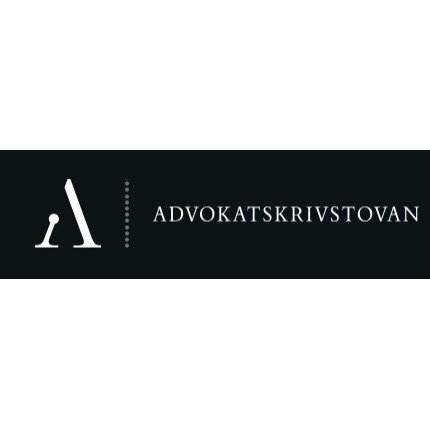Best Probate Lawyers in Faroe Islands
Share your needs with us, get contacted by law firms.
Free. Takes 2 min.
Or refine your search by selecting a city:
List of the best lawyers in Faroe Islands
About Probate Law in Faroe Islands
The probate process in the Faroe Islands involves the administration and distribution of a deceased person's estate. This includes validating the will, paying debts and taxes, and distributing the remaining assets to the rightful heirs. The probate process ensures that the decedent's wishes are respected and the rights of any beneficiaries are protected. It is governed by local laws that reflect both the unique cultural aspects and the legal framework of the area.
Why You May Need a Lawyer
Legal assistance may be important in various probate-related situations, including:
- Contested Wills: When a will is disputed, legal expertise is crucial in navigating claims and legal challenges.
- Complex Estates: Estates with significant assets, debts, or international elements often require specialized advice.
- Understanding Legal Obligations: Executors and administrators may seek legal counsel to ensure compliance with all legal duties.
- Unclear Wills: Situations where the terms of the will are ambiguous or incomplete necessitate professional interpretation.
Local Laws Overview
Key aspects of probate law in the Faroe Islands include:
- Intestacy Rules: When there is no will, local intestacy laws dictate how the estate is divided among relatives.
- Will Requirements: For a will to be valid, it must meet specific formal requirements such as being written and signed by the testator.
- Executor's Role: The executor is responsible for administering the estate, paying debts, and distributing assets.
- Tax Implications: Estates may be subject to inheritance tax; understanding these obligations is vital for legal compliance.
Frequently Asked Questions
What is probate?
Probate is the legal process of settling a deceased person's estate, including validating their will, paying debts, and distributing assets to beneficiaries.
Do all estates go through probate in the Faroe Islands?
While not all estates require formal probate, larger or more complex estates typically do. Simplified procedures may be available for smaller estates.
How long does the probate process take?
The duration of probate can vary widely depending on the size and complexity of the estate. It can take several months to over a year.
What happens if someone dies without a will?
If a person dies intestate (without a will), their estate is distributed according to Faroese intestacy laws, which prioritize family members as heirs.
Can a will be contested?
Yes, a will can be contested on various grounds such as fraud, undue influence, or if the testator lacked capacity when making the will.
What are the responsibilities of an executor?
An executor is responsible for managing the estate, which includes safeguarding assets, paying debts, filing taxes, and distributing property as per the will or laws.
Are there taxes on inheritance in the Faroe Islands?
Yes, inheritance may be subject to taxes, and the specifics depend on the value and nature of the inheritance and the relationship to the deceased.
Can property be transferred outside of probate?
Certain properties, such as those held in joint tenancy or with a named beneficiary, can transfer outside of probate.
Is probate required if there is a living trust?
If assets are held in a living trust, they typically bypass probate, simplifying the transfer process to beneficiaries.
Can a foreigner inherit property in the Faroe Islands?
Foreigners can inherit property, but there may be specific regulations or taxes involved. Legal advice is recommended in these cases.
Additional Resources
For further guidance, consider reaching out to the following resources:
- The Faroese Ministry of Justice: Provides information on legal processes including probate.
- Local Solicitors specializing in probate and estate planning: Can offer personalized legal advice.
- Public Libraries in the Faroe Islands: May hold legal guides and resources on estate laws.
Next Steps
If you seek legal assistance regarding probate matters:
- Consult a Lawyer: Consider hiring a legal expert specializing in probate law to guide you through the process.
- Gather Relevant Documents: Ensure you have essential documents such as wills, death certificates, and property deeds ready.
- Understand Your Role: Whether you are an executor, heir, or claimant, clarify your legal position and responsibilities.
Taking these steps can help streamline the probate process and ensure a smoother legal experience.
Lawzana helps you find the best lawyers and law firms in Faroe Islands through a curated and pre-screened list of qualified legal professionals. Our platform offers rankings and detailed profiles of attorneys and law firms, allowing you to compare based on practice areas, including Probate, experience, and client feedback.
Each profile includes a description of the firm's areas of practice, client reviews, team members and partners, year of establishment, spoken languages, office locations, contact information, social media presence, and any published articles or resources. Most firms on our platform speak English and are experienced in both local and international legal matters.
Get a quote from top-rated law firms in Faroe Islands — quickly, securely, and without unnecessary hassle.
Disclaimer:
The information provided on this page is for general informational purposes only and does not constitute legal advice. While we strive to ensure the accuracy and relevance of the content, legal information may change over time, and interpretations of the law can vary. You should always consult with a qualified legal professional for advice specific to your situation.
We disclaim all liability for actions taken or not taken based on the content of this page. If you believe any information is incorrect or outdated, please contact us, and we will review and update it where appropriate.
Browse probate law firms by city in Faroe Islands
Refine your search by selecting a city.









